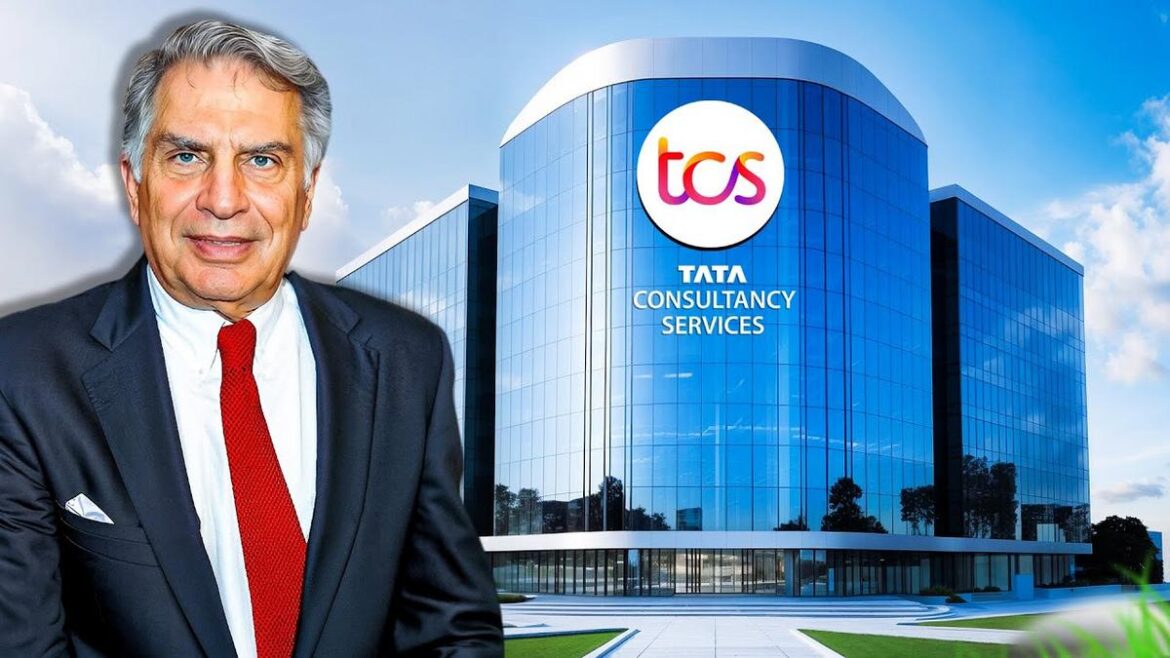TCS Q1FY26 Results: Profit Surpasses Forecasts, Revenue Lags Behind Due to Global Pressures
Tata Consultancy Services (TCS), India’s largest IT services firm, opened its fiscal year on a slightly uneven note. The company reported better-than-expected profits but fell short of revenue projections in its Q1FY26 earnings released on Thursday. Macro-economic headwinds and shifting geopolitical conditions played a central role in dampening revenue growth, though cost management and deal wins helped push profits ahead of analyst expectations.
Market Expectations Vs. Reality: A Mixed Bag
The company posted a 6 percent year-on-year rise in net profit for the quarter ended June 30, 2025, pulling in Rs 12,760 crore. This figure exceeded Bloomberg analyst estimates, which had forecast a modest profit growth of 1.9 percent, pegging the figure at Rs 12,263 crore.
Revenue, though, disappointed. TCS reported revenue from operations at Rs 63,437 crore, marking a growth of just 1.3 percent compared to the same quarter last year. Analysts had expected stronger numbers, eyeing Rs 64,636 crore.
“The continued global macro-economic and geo-political uncertainties caused a demand contraction. On the positive side, all the new services grew well. We saw robust deal closures during this quarter,” said K Krithivasan, Chief Executive Officer and Managing Director of TCS.
Key Q1FY26 Figures at a Glance
- Net Profit: Rs 12,760 crore (up 6% YoY)
- Revenue: Rs 63,437 crore (up 1.3% YoY)
- Operating Margin: 24.5% (up 30 bps from Q4)
- Total Contract Value: $9.4 billion
- Employees Added: 6,071
- Total Workforce: 6,13,069 employees
- Attrition Rate: 13.8%
Timeline of Q1FY26 at TCS
This quarter was layered with high expectations, especially after a fairly strong close to the last fiscal year. But early signals suggested the ride could be shaky this time. Here’s how it unfolded:
- Early April: Global analysts begin rolling out cautious but steady outlooks for Indian IT firms amid ongoing economic unrest overseas.
- Late June: Employee numbers, hiring activity, and upskilling trends suggest internal confidence, even though market sentiment remains cautious.
- July 10: TCS releases its quarterly numbers, surprising with profitability but raising questions over slowed top-line growth.
Official Statements from TCS Leadership
TCS executives addressed growing concerns by outlining how the company remained agile despite the challenges. CFO Samir Seksaria stated:
“We continued our investments in long term sustainable growth this quarter. We stayed agile and adapted to the dynamic environment, delivering steady margins.”
The firm’s EBIT margin ticked up to 24.5 percent, an improvement from 24.2 percent in the previous quarter. It’s a subtle yet notable shift, suggesting tighter management of resources and improved cost controls even as revenue took a hit.
Milind Lakkad, Chief HR Officer of TCS, weighed in on talent development:
“Talent Development is core to TCS. In this quarter, our associates invested 15 million hours in building expertise in emerging technologies, enabling them to lead the transformation journey for our customers. It is gratifying to note that TCS now has 1,14,000 people with higher order AI skills.”
Dividend Announcement and Stock Performance
The company sweetened the quarter’s report with news of an interim dividend. Shareholders will receive Rs 11 per share, with a record date set for July 16, 2025, and payment scheduled for August 4, 2025.
TCS shares edged up slightly ahead of the results, closing Thursday at Rs 3,397.1, up by 0.4 percent.
Community Response and Market Reaction
Investor reaction has been, let’s say, cautiously optimistic. The slight uptick in share price suggests limited disappointment over the missed revenue target, likely tempered by the stronger-than-expected profits and margin stability.
Analysts say the $9.4 billion in Total Contract Value (TCV) offers a decent foundation for future quarters. Yes, it’s a drop from the $12.2 billion in TCV seen in Q4, but it managed to beat Street expectations which ranged between $8 billion and $9 billion.
From a hiring and workforce standpoint, adding over 6,000 employees is no small feat in tight market conditions. The total headcount now stands at a solid 6,13,069, indicating that TCS continues to bank on long-term need rather than short-term uncertainty.
Employee Experience and Attrition Trends
One continuous area of focus this quarter has been attrition. The company reported a slight increase in its attrition rate, which rose to 13.8 percent from 13.3 percent in the previous quarter. This uptick, while not alarming, does suggest some movement and possibly a shift in labor dynamics—especially with regard to skilled professionals navigating multiple offers.
Upskilling and AI Readiness
It’s hard not to notice TCS’s growing involvement in AI-based services. With over 1.14 lakh employees trained in advanced AI competencies, the leadership seems intent on preparing the firm for whatever the next wave of tech demands. A total of 15 million hours were invested in employee upskilling during this quarter alone. That’s a pretty bold bet on the future.
What’s Next for TCS?
Looking ahead, the next few quarters will tell whether Q1FY26 was a hiccup or a sign of longer-term moderation. For now, the company appears stable, bolstered by solid profit margins, a large workforce, and a clear focus on capability expansion—especially in AI and related technologies.
The overall feeling here? Cautious resilience. TCS has managed to beat expectations where it mattered most—on the bottom line—while keeping a sharp eye on operational discipline. Still, weaker revenue and slightly higher attrition will remain threads to watch going forward.
Key Takeaways
- Profit beats the market estimate by a significant margin.
- Revenue underwhelms as external pressures hold business back slightly.
- Strong internal investments continue to shore up talent and capability.
- Dividend payout and stock stability offer reasons for shareholders to stay calm.
Whatever the rest of FY26 holds, it’s clear that TCS is sticking to its strategy: measured growth, talent investment, and operational vigilance.

